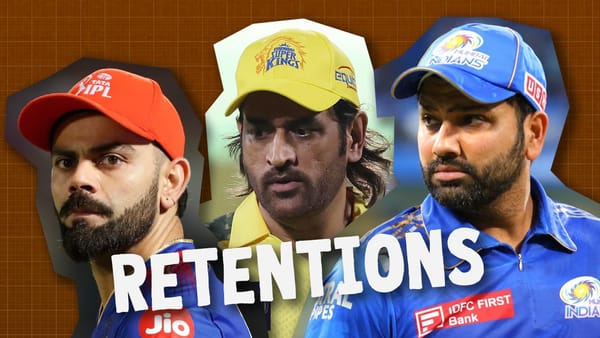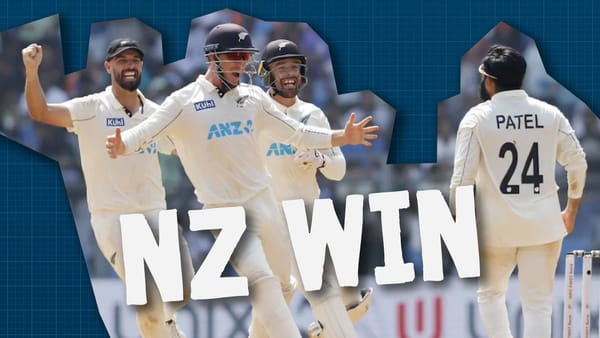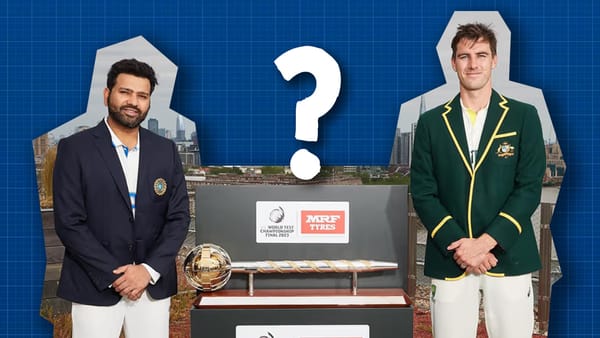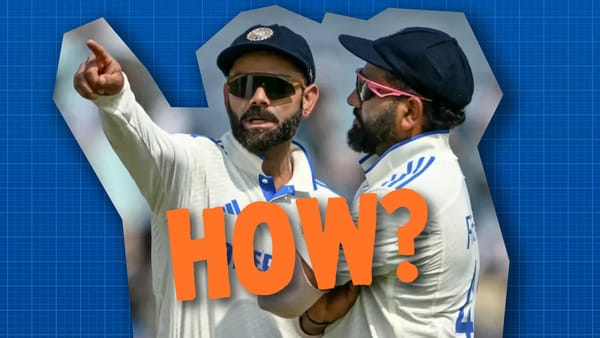Sport, politics and ignorance
Politics in sport isn't just athletes boycotting or kneeling, it's often them just playing the game
My tape of "When We Were Kings' the boxing documentary on the Rumble in the Jungle wore out from so many watches. Muhammad Ali was my hero; the film was so beautiful, it had incredible writers, a brilliant villain, banging soundtrack and I obsessed over it. At the same time in my life, if anyone had bothered to ask some random teenager his opinion, I would have told them that sport and politics shouldn't mix. And until my mid-20s, perhaps even later, I felt the same.
I found this video of Ben Shapiro because it best sums up how I felt every time I noticed politics coming into sport.
Ben Shapiro is mad that he can't watch sports anymore because there's too much "politics" in it: "My place of comfort has been removed from me"
— Jason Campbell (@JasonSCampbell) 10:40 PM ∙ Jun 8, 2020
This view in my late teens and early 20s is the only thing I share with Ben Shapiro other than we are both primates. But had I seen this rant back then, I would have been screaming along with him, even if I still would have disagreed with his actual complaints. Now I just google sports illustrated and politics, and I found that they had no problem with politics being in sport. It's just Ben (and me when I was younger) are too thick and arrogant to notice.

I had this idea that sport was above politics, that sport was fair and just, and that politics of any kind would ruin it. When the star guard of my Denver Nuggets Mahmoud Abdul-Rauf protested, I saw it as an annoyance. And yet, while most people know the names of Tommie Smith and John Carlos, I grew up near to where Peter Norman - the forgotten third person on that podium - came from. They sold him in my house as a hero, but still, with Mahmoud, Muhammad and Norman, I couldn't see it.

Now I see politics corrupt sport in every way. And eventually, I got so angry about this I started writing about it. I now write about politics in cricket, from the India Pakistan potential world cup boycotts, to what happened when Henry Olonga and Andy Flower protested, how the Sri Lankan government need to give a final ok for squads, the Aussie PM in sandpapergate through to how the game has treated women. Oh, and I made a film about the politics of cricket .
And the reason is, the more you learn about sport, the more you realise that politics cannot be taken out of them. In fact, they can't be taken out of anything.
One of the best explanations I have seen on this recently was the great basketballer Sue Bird (Oh, and one half of the super sporting couple with Megan Rapinoe) talking about it.
Sue(@S10Bird) on the new @OldManAndThree on “sticking to sports” is 🔥🔥🔥🔥🔥. @jj_redick
— TA (@talter) 4:49 PM ∙ Aug 20, 2020
If you don't want to listen, at one stage she says, "And who is anyone to tell us as female athletes to just stick to sports. We actually tried to do that, and no one let us."
Mostly when we are upset about politics being in sport, we often mean Colin Kaepernick kneeling, Tim Tebow's views or Enes Kanter's politics. What we don't factor in is how players doing their jobs are put in political situations.
If you are a gay athlete and you have to travel to Russia for the Olympics, that is political. If you're a refugee having to play a world cup in Qatar, that is political. When a sprinter cannot represent their own country at the Olympics because of a war, that is political. A black athlete getting worse treatment from the press or fans because of the colour of their skin, that is political.
A few years back I wrote about the legendary Sri Lankan netballer Tharjini Sivalingam . She grew up in a war zone, as the LTTE and her government made her family leave their home due to the conflict. Like the cricket god Murali, she is Tamil. She brings her politics with her. She can't give them up; they are part of her identity. And they will be used - for good, for bad - by people on the outside. Every easily scored goal she scores is political, even if she is neutral.
And this is the case right across sports. When Cathy Freeman ran for Australia at the 2000 Olympics, it was a bigger moment because of the fact she wasn't just Australian, but indigenous Australian. Freeman wasn't running for politics; she ran because she loved running and she was better than other people. But as fast as she ran, the politics kept up with her.
You see it around the world all the time. Naomi Osaka's ethnicity is political. Mesut Ozil's patriotism is political. Siya Kolisi's leadership is political. Bubba Wallace's driving is political.
Athletes just want to run fast, hit the thing, score and win. But as Sue Bird said, we make them political and then get upset when they do.
Right now there are Basketballers, tennis players, baseballers and footballers who have said we won't play because an unarmed man named Jacob Blake was shot seven times in the back as he tried to get back into his car. This happened in Wisconsin.
Wisconsin is the home of the Milwaukee Bucks, who started the boycotts or strikes. This is their statement, "When we take the court and represent Milwaukee and Wisconsin, we are expected to play at a high level, give maximum effort and hold each other accountable. We hold ourselves to that standard, and in this moment, we are demanding the same from our lawmakers and law enforcement. We are calling for justice for Jacob Blake and demand the officers be held accountable."
The Milwaukee Bucks statement:
— Malika Andrews (@malika_andrews) 11:25 PM ∙ Aug 26, 2020
And this isn't NBA athletes bringing politics into sport. The man who gave the speech once feared for his life with the police. Sterling Brown is a role player with the Bucks, and a couple of years back, late one night, he lazily parked over some disabled parking spots to run into a store. When he came out there was a police officer there, and instead of getting a ticket, he was given a beating and had someone stand on his neck.
Sterling Brown knows he could have died. One police officer took out a gun, and he was surrounded by eight of them. On the body cam footage, you can hear the police officers mocking him as a Bucks player. They know who he is, and they felt comfortable enough to mock and injure him. Houston Rockets' Thabo Sefolosha received four million dollars for receiving broken legs from the New York police. This isn't them bringing politics into sport; they are living this.
When the NFL players pressured the league to speak up about kneeling, they were clear. They said, "What if I was George Floyd".
NFL players put together this video, via @saquon:
— Adam Schefter (@AdamSchefter) 1:15 AM ∙ Jun 5, 2020
They know they could die from this. From a parking ticket, from trying to stop others fighting, or from being in their own home when a police officer walks into the wrong house. These athletes aren't bringing politics into sport. It followed them. They're just using their gifts to try to defeat it, which is what they're trained to do.
I don't know exactly when I started realising that sports and politics would mix, regardless. But now when I go back to watch "When We Were Kings" I can't understand how I didn't get all of this before. Here I was watching Muhummad Ali, a man only trying to reclaim his title because he gave it away refusing to fight in a nonsensical war. They also say the reason the Rumble In the Jungle was in Zaire (Now the Democratic Republic of the Congo) was because President Mobutu Sese Seko wanted his country to be known, and he thought staging a huge boxing match was cheaper than going to war.
Muhammad Ali was one of the most political sporting figures of all time, and the Rumble In the Jungle was one of the biggest sporting events in history with two African American fighters returning to Africa for the World Heavyweight title. And the entire thing was there to sports wash and promote a corrupt regime. I watched this 100 times, and I never saw it. Now it's all I see.
Sport and politics do mix, and as I spent many years proving, so do sport and ignorance.
This Sunday 7 pm UK time you can hear me on this very topic on a special documentary I've made for talkSPORT on why athletes protest.
I talked to NBA Champion Craig Hodges, and we have plenty of audio from others including Andy Flower, Martin Offiah and James McClean. While looking at Colin Kaepernick, Jesse Owens, Maya Moore, Feyisa Lilesa, Nicky Winmar and many others.




